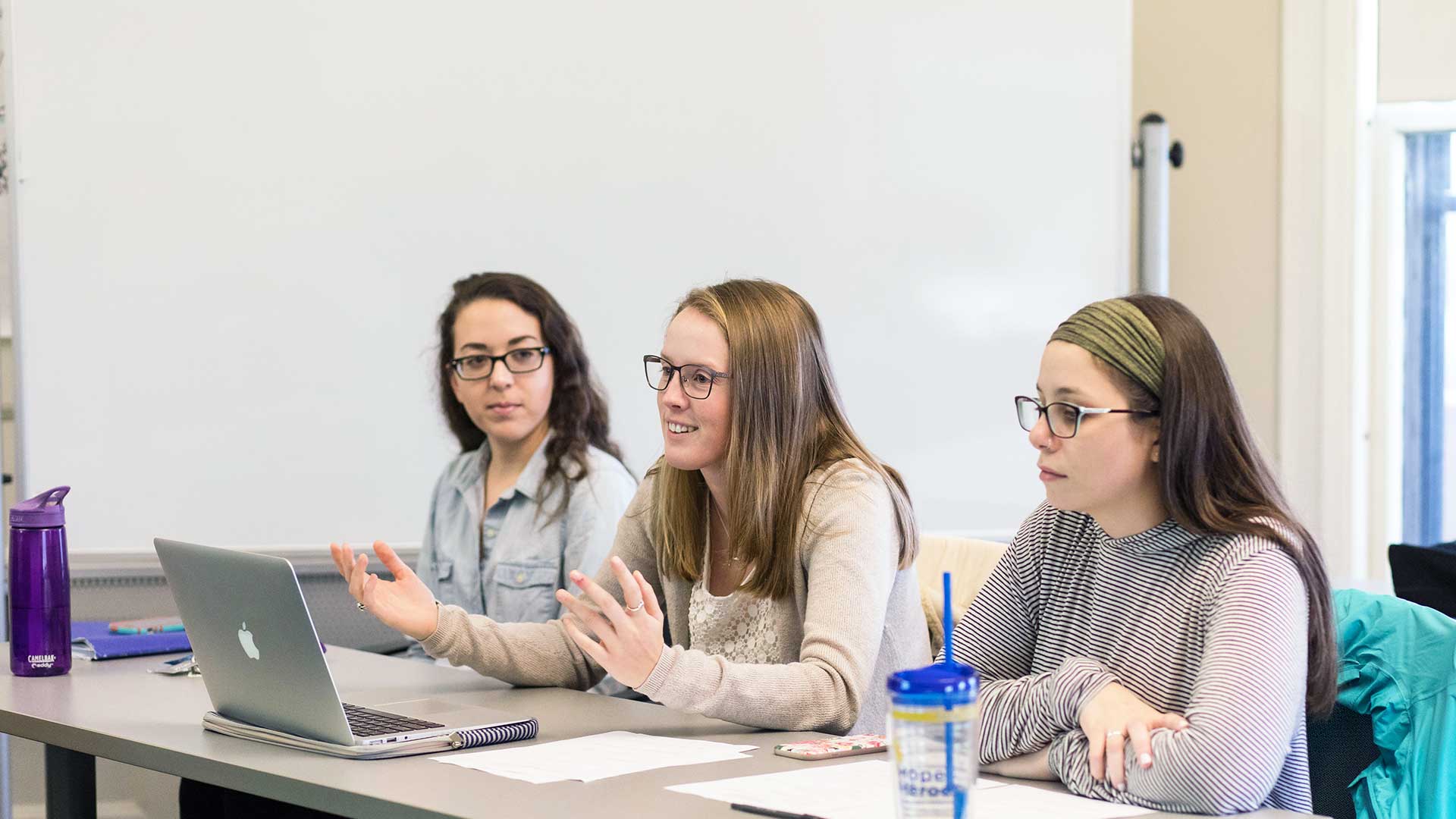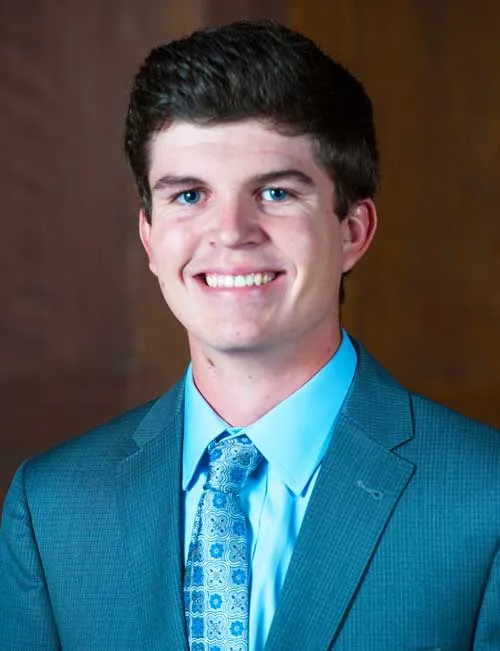Secondary Education

Secondary Education
Salve Regina University's bachelor's degree in secondary education readies students to apply for Rhode Island teacher certification in selected content areas for grades 7-12. Our majors develop the skills required to be an effective leader and the expertise to confidently move from being students in the classroom to teachers who will make a difference.
Prepare to Effectively Engage Diverse Students
Students who major in secondary education select an additional major in biology, chemistry, English literature, history or mathematics. The double major ensures that students gain in-depth content area knowledge and are positioned for success in the secondary education setting.
A strategic progression of coursework and field placements helps students build a strong foundation in teaching and learning based on current theory and best practices. Concurrent with their coursework, our students spend significant time in field placements during their second, third and fourth years. As a result, our majors are prepared to effectively engage diverse students in a variety of school contexts.
Students should consult the webpage pertinent to the additional major of their choice for information regarding specific course requirements. It is recommended that biology majors seek certification in general science, which requires two physics courses (including a calculus prerequisite) and two chemistry courses.
Program Spotlight: Gerald Haas ’17

Haas teaches math in Middletown High School’s Anchor Academy, which strives to ensure the success of all first-year students. He teaches three sections of Algebra I and a section of Foundations of Algebra, with both classes comprised mainly of ninth grade students. During the spring season, he is also the assistant coach of the Middletown golf team.
I truly enjoy the opportunity to work with my students and provide them with the support and encouragement they need to be successful both in mathematics and in life.
Salve’s secondary education program provided me with the skills I need to create an effective learning environment in the classroom. The most helpful component of the secondary education program was the various field placements I was able to experience. I was able to observe four different high schools during my four years at Salve, with my first observations during my freshman year. These different classroom experiences helped to craft my teaching style and helped lead me to where I am today.

Our Faculty
As the coordinator of Salve Regina's secondary education program, Dr. Tracy Pelkowski’s research focuses on how to prepare culturally responsive educators. Her current study examines students' perceptions of their racial identity development and critical consciousness during the course Introduction to Race and Inequality in American Education. Her research is investigating students' development of culturally responsive pedagogy as they progress through the secondary education program.
Life After Salve
While Salve Regina's secondary education program is focused on teaching grades 7-12 in a specific subject area, the core competencies gained are valuable in a variety of professional careers, including:
- Admissions counselor
- Corporate trainer
- Education consultant
- Museum educator
- Principal
- Professor
- Teacher
- School counselor
- Writer
Major in Secondary Education (B.A.S.)
15 courses | 43 credits
Required courses:
- EDC120: Introduction to Race and Inequality in American Education
- SCD212: Teaching Literacy in the Content Area
- SCD220: Child and Adolescent Development, Learning and Teaching: Theories and Applications
- SCD298: Secondary Field Experience in a Multicultural Society I
- SCD299: Secondary Field Experience in a Multicultural Society II
- SCD310: Strategies for Teaching Secondary English Learners
- SCD320: Curriculum, Instruction and Assessment in the Secondary School I
- SCD321: Practicum for Curriculum, Instruction and Assessment in the Secondary School I
- SCD322: Practicum for Curriculum, Instruction and Assessment in the Secondary School II
- SCD323: Curriculum, Instruction and Assessment in the Secondary School II
- SCD410: Classroom Management
- SCD432: Student Teaching Seminar Capstone
- SCD440: Practicum in Secondary Education
- SCD441: Secondary Student Teaching
- SED211: Introduction to the Characteristics of Students with Exceptionalities
Secondary education majors are encouraged to consider a study abroad program during the second semester of their sophomore year.
Minor in Secondary Education
6 courses | 17 credits
Required courses:
- EDC120: Introduction to Race and Equity in American Education
- SCD212: Teaching Literacy in the Content Area
- SCD220: Child and Adolescent Development and Theories of Learning
- SED211: Introduction to the Characteristics of Students With Exceptionalities
Students take an additional five credits in secondary education or a related area, chosen in consultation with the program coordinator.
Students who minor in secondary education are not eligible for a Rhode Island teaching certificate.